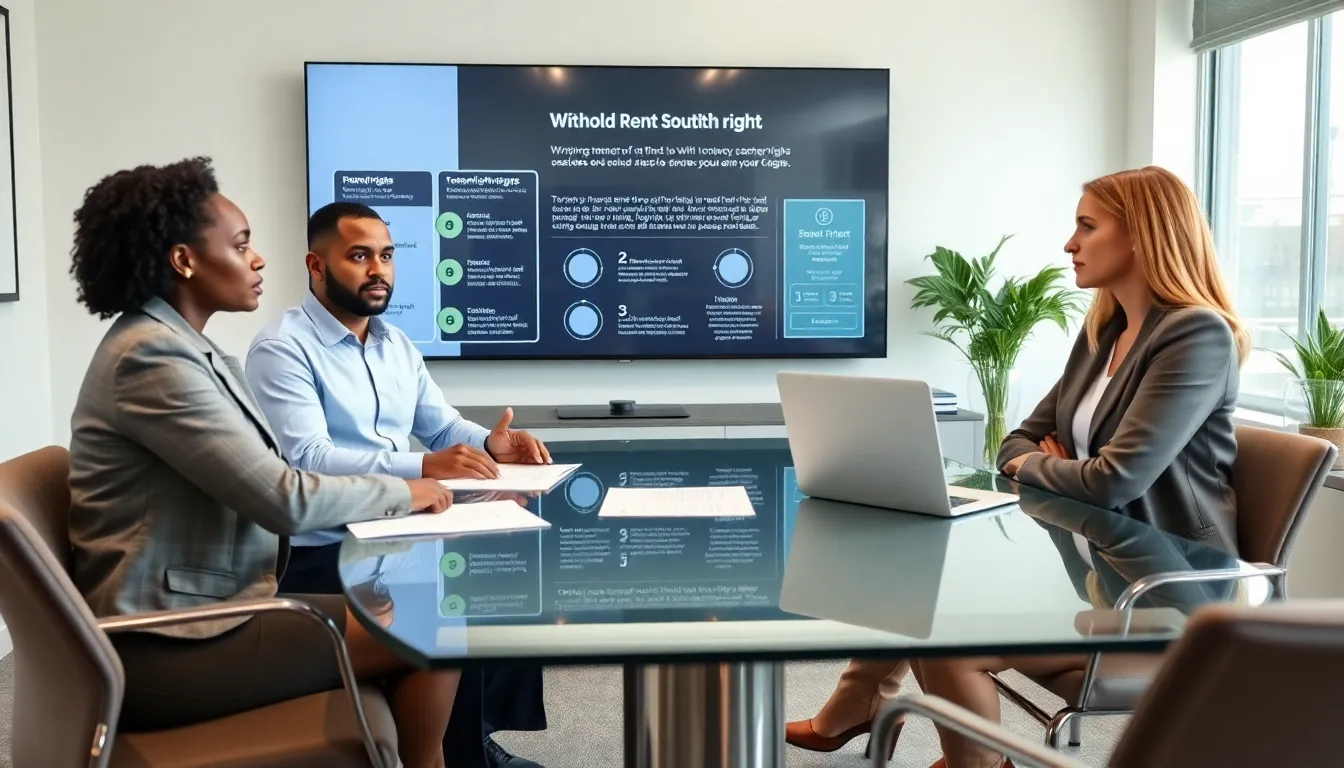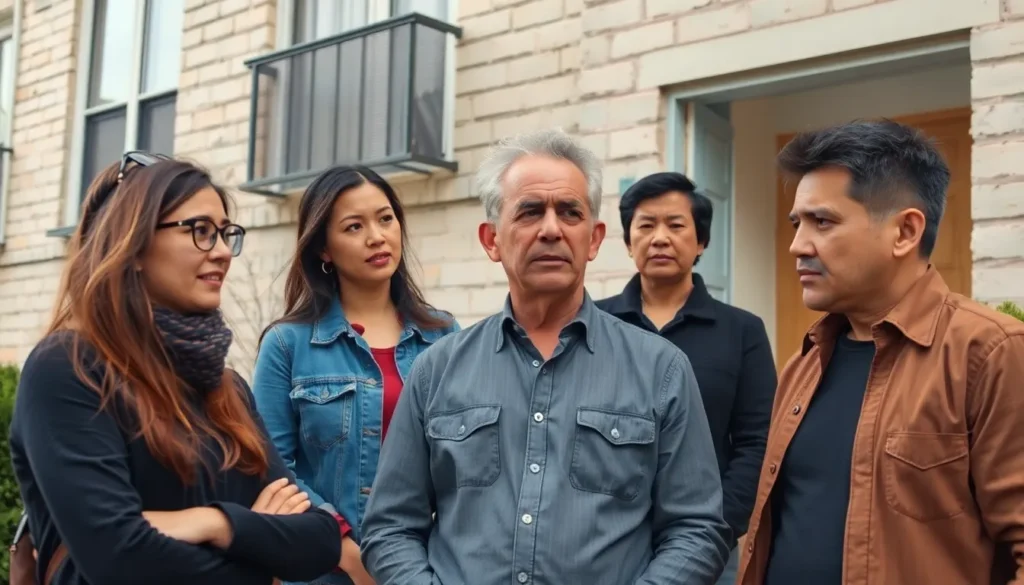Imagine this: you wake up one morning, and the ceiling is dripping, the heating system is on strike, and your sink looks more like a science experiment than a functional fixture. Your landlord, but, seems to be enjoying their summer vacation, ignoring your calls and messages. So, what’s a tenant to do? In South Carolina, the law provides certain rights about rent withholding when landlords fail in their duties. Let’s jump into the nitty-gritty of tenant rights to withhold rent and empower the tenants out there.
Table of Contents
ToggleUnderstanding the Right To Withhold Rent

Withholding rent isn’t just a whimsical idea tenants can pluck out of thin air. In South Carolina, it’s a serious step that can arise from several troubling circumstances. This right comes into play when landlords neglect to uphold their end of the bargain, which includes maintaining a safe and habitable living environment. If tenets find themselves living in conditions that breach the warranty of habitability, meaning the place is unlivable, they might consider withholding rent. But, before making such a bold move, it’s crucial to understand the framework around this decision.
Legal Grounds For Withholding Rent
In South Carolina, tenants are legally allowed to withhold rent under specific circumstances. If there are substantial issues, such as a leaky roof, broken heating systems in winter, or pest infestations, tenants have grounds to act. According to South Carolina Code of Laws § 27-40-310, if a landlord fails to make necessary repairs, the tenant can potentially withhold rent until these issues are addressed. Of course, it’s important to note that minor problems may not be sufficient to justify withholding rent.
Steps Tenants Should Take Before Withholding Rent
Withholding rent is hefty business and should never be taken lightly. Before any dishing out of checks comes to a halt, tenants should follow a few fundamental steps:
Communication With Landlords
First things first, communication should be prioritized. Reach out to the landlord directly, perhaps through email or certified mail, to report issues clearly. Be polite yet firm, describing the problems thoroughly without casting blame. They might resolve the issues promptly, who knows?
Documenting Conditions and Issues
Keeping a paper trail is paramount. Tenants should document every issue, capturing dates, times, and the nature of the problem with photos if possible. Solid evidence can bolster a case that withholding rent is justified.
Notifying the Landlord of Intent To Withhold Rent
Once documentation is solid, tenants should notify their landlord of their intent to withhold rent. This is not merely a casual mention. Instead, it should be a formal letter outlining the issues, the failure to address them, and intent to withhold rent until those problems are resolved.
Potential Consequences of Withholding Rent
While withholding rent can feel like waving a flag of independence, it’s crucial to understand the potential repercussions.
Understanding Eviction Risks
The landlords aren’t likely to cheerfully accept missed payments. Eviction proceedings could follow, as landlords may consider this a breach of lease agreement. So, tenants need to be genuinely prepared for the consequences before taking this journey.
Legal Protections for Tenants
But, it’s not all doom and gloom. South Carolina law provides tenants with some protective measures against retaliation from landlords. They cannot legally evict tenants simply for exercising their rights to withhold rent when proper steps have been followed. But, legal advice should be sought to fully understand these protections.
Alternatives To Withholding Rent
Sometimes, the nuclear option isn’t the best choice. Before resorting to withholding rent, tenants might explore alternative solutions.
Repairs and Maintenance Requests
Rather than withholding rent outright, tenants could demand repairs in writing. Presenting requests in a professional manner can often lead to quicker results without escalating tensions.
Seeking Legal Assistance
If issues persist, consulting with a legal professional who specializes in landlord-tenant relations could provide needed clarity. They can offer guidance tailored to your particular case, ensuring tenants know their rights.













